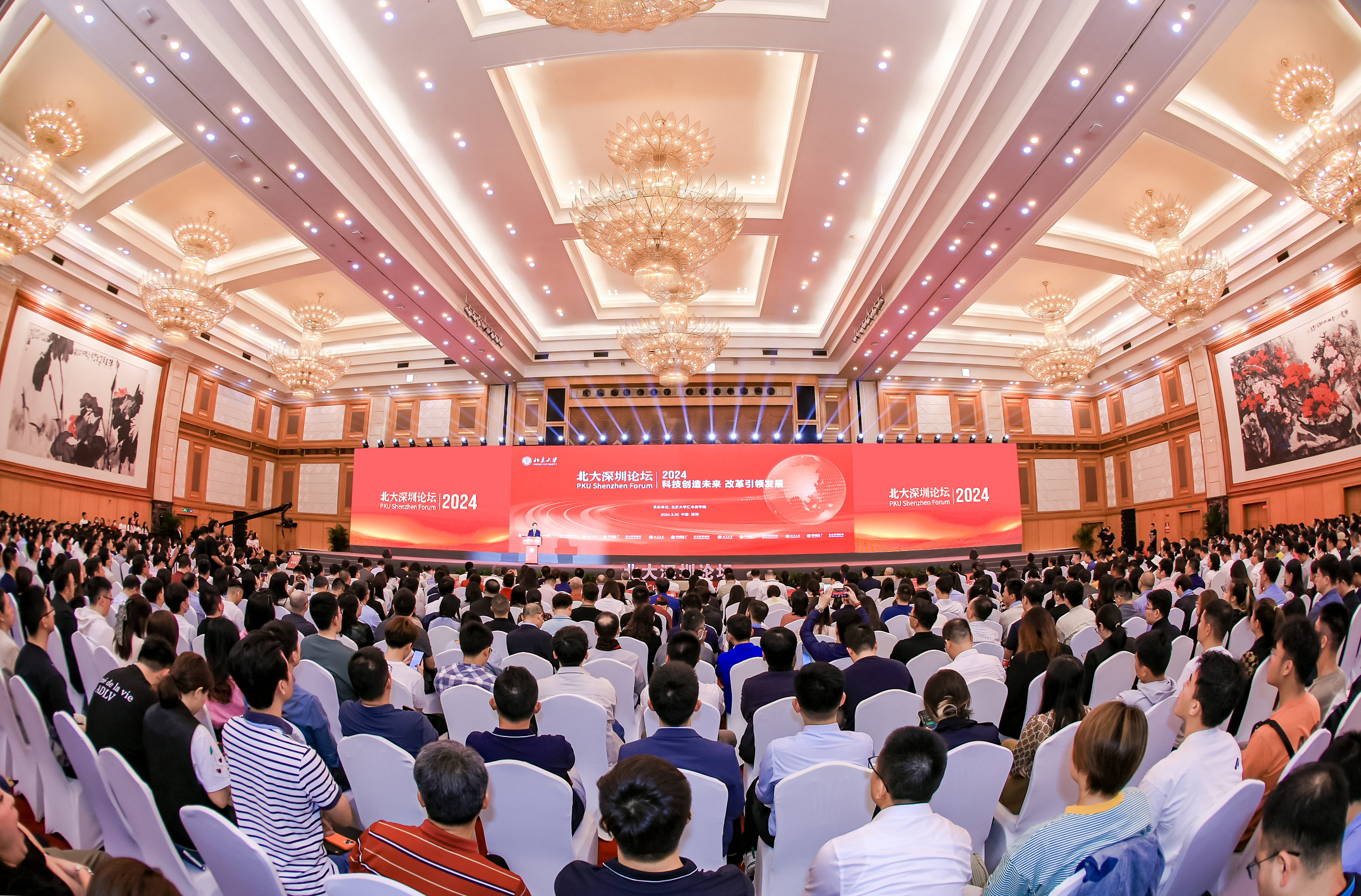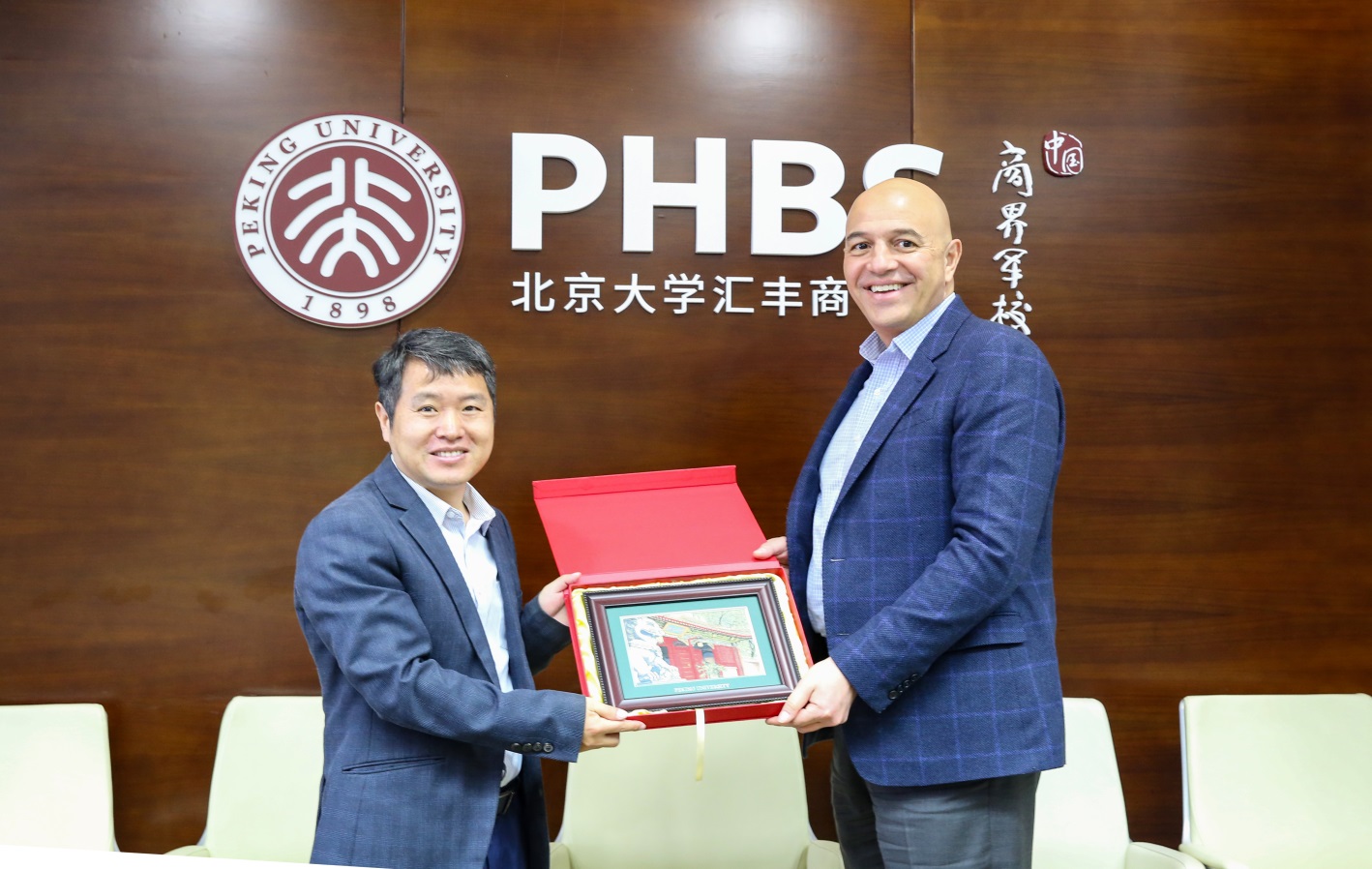
A group photo of the participating scholars
As the economy enters into the “new normal,” China and the world are confronting a series of new issues since structural economic decline becomes inevitable. How can we understand the “new normal”? How can frontiers of economic theory better reflect real economic trends? What is the Chinese economic prospect for supply-side reform? These intriguing issues have provided the impetus for scholars to study the Chinese economy from new perspectives, and their research will then allow the market and governments to evaluate China’s economic transition more scientifically.
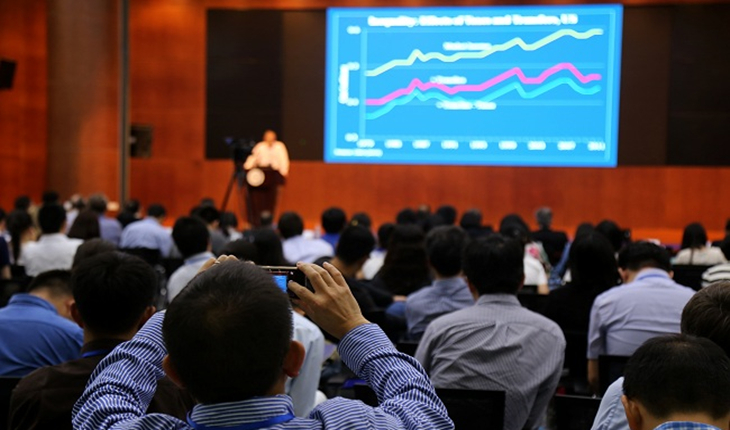
The Plenary sessions of 2016 Conference of CES
With the theme of “Sustainable Development in China and the World: Understanding the Economics of the New Normal,” the 2016 Conference of the Chinese Economists Society (CES) was held at the Peking University HSBC Business School, Shenzhen, June 11 to 12. The annual conference this year featured 12 keynote speeches, 50 paper presentation sessions, and 7 round-table forums. More than 300 economists and policy makers from the United States, Britain, Canada, Japan, China and other countries converged to have discussions on Chinese economic issues and frontiers of economic theories and research. The conference started with opening remarks delivered by Hai Wen, vice chairman of the Peking University School Council and dean of Peking University HSBC School and Wing Thye Woo, president of the Chinese Economists Society.
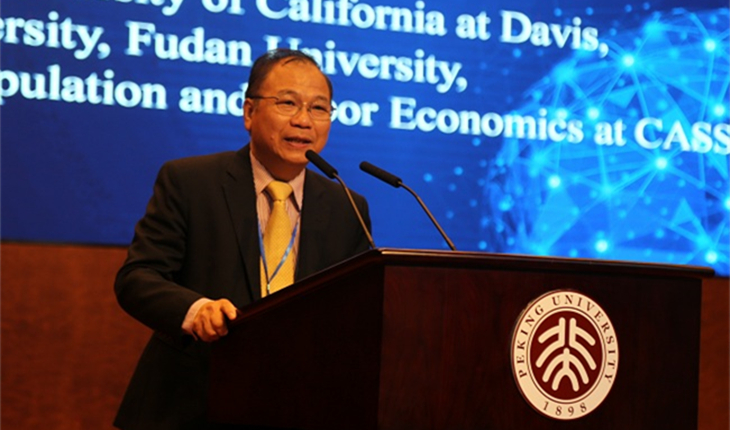
Wing Thye Woo, president of the Chinese Economists Society, delivers opening remarks
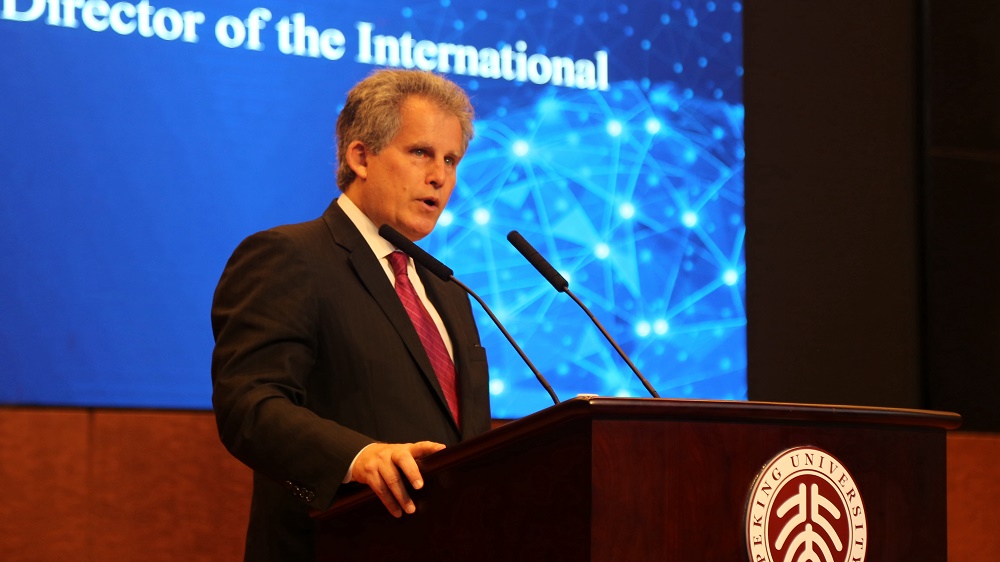 The first managing director of the IMF David Lipton share his insights on how to restore stable growth to the turbulent world economy
The first managing director of the IMF David Lipton share his insights on how to restore stable growth to the turbulent world economy
The two-day conference featured world-renowned scholars and experts who delivered plenary reports and shared their insights with participants. The first managing director of the IMF David Lipton was invited to share his experience in international affairs and give talks on how to restore stable growth to the turbulent world economy. He said China’s corporate debt remains a serious and growing problem that must be addressed immediately and with a commitment to serious reforms. He offered two main strategies: A corporate insolvency framework to facilitate the rehabilitation of viable firms and the speedy liquidation of nonviable ones; and taking quick action to address the problems of “zombie firms.”
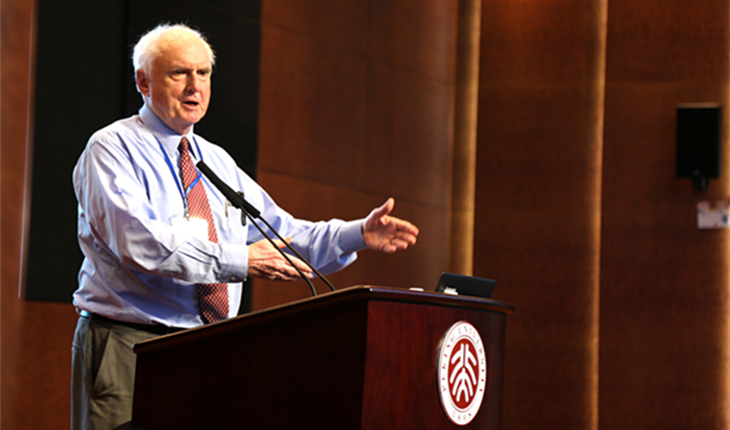 Dwight Perkins, emeritus of Harvard University, delivers a keynote speech on China's economic future——a "hard landing" or secular stagnation
Dwight Perkins, emeritus of Harvard University, delivers a keynote speech on China's economic future——a "hard landing" or secular stagnation
Further, Dwight Perkins, emeritus of Harvard University and former director of the Harvard Eastern Asia Research Center, shared his expertise on China’s economic development. Professor Alan Auerbach, director of the Burch Center for Tax Policy and Public Finance at the University of California, Berkeley, presented his research on public finance and policy. As an expert in macro-prudent policy, Kiyohiko Nishimura, professor University of Tokyo, shed some light on how demographic structure can affect policy-making. Charles Wyplosz, professor of International Economics at the Graduate Institute in Geneva, presented on the duties and power of the central banks. Their keynote speeches actually revealed many headaches in China: huge corporate debt, aging population, and problematic monetary policies, all which were of much concern to the participating scholars.
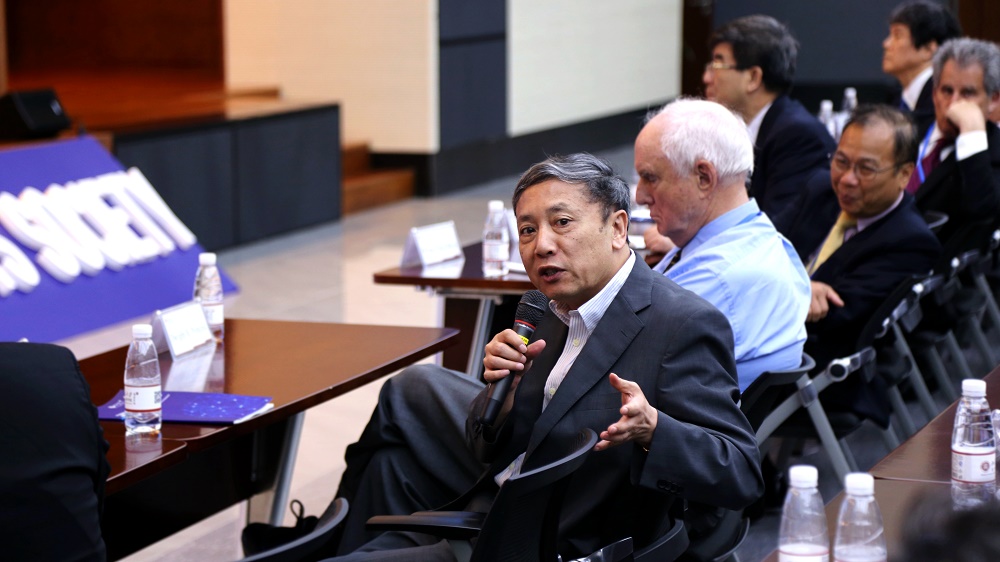
Cai Fang, vice president of the Chinese Academy of Social Sciences, answers questions from the audience
Many influential Chinese scholars and economists also attended the conference to exchange their views with their international counterparts. Cai Fang, vice president of the Chinese Academy of Social Sciences; Fang Gang, director of the National Economic Research Institute and professor at Peking University HSBC School; Lu Ming, director of Center for China Development Studies at the Department of Economics and professor of Shanghai Jiao Tong University; and Yuan Zhigang, professor of the School of Economics, Fudan University presented plenary reports. They addressed China’s economic downturn under the supply-side perspective, China’s economic cycles and long-term potential, the divergence of human capital in cities, and China’s balance sheet expansion. Demographic and labor market issues emerged as a spotlight, since scholars like Kiyohiko Nishimura, Cai Fan, Alan Auerbach, Lu Ming all analyzed China’s economic slowdown from the demographic perspective. Cai argued that labor shortage and demographic dividend declines are closely related to China’s rapid slowdown. The demographic dividend refers to economic growth potential that can result from shifts in a population’s age structure, mainly when working-age population is larger than the non-working-age. Meanwhile, Nishimura held that as a country enters into an aging society, macro-economic stimuli will be less effective due to corresponding decreases in the aggregate demand.
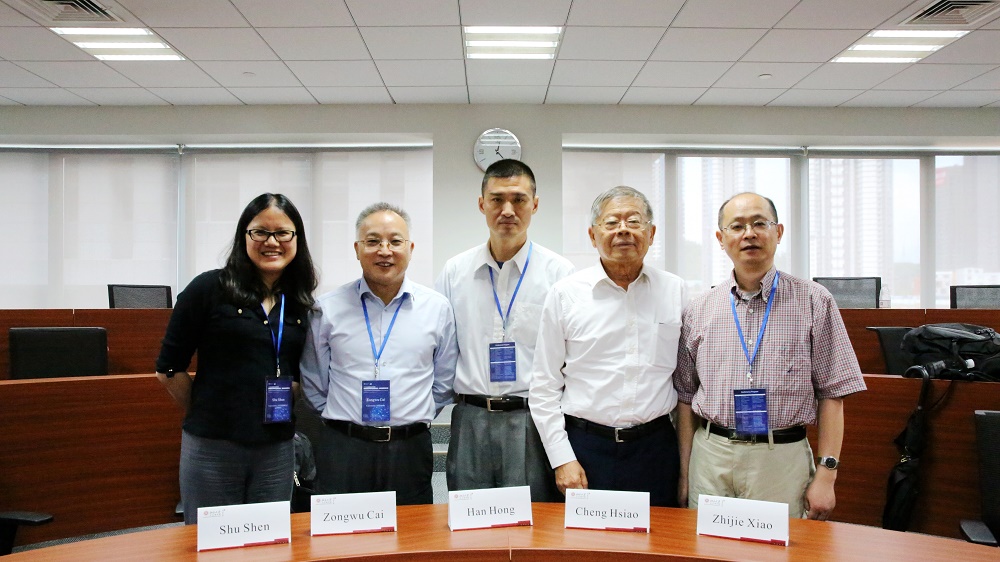
A group photo of participating scholars at the roundtable forum on econometrics
With more than 200 original and unpublished research papers selected for presentation and discussion, concurrent sessions and roundtable forums were the highlights of the event. Those papers not only covered the mainstream of economics, but also explored some new areas, such as computational economics, spatial-political economics, and the “sharing economy.” Many of the presenters and participants have already published research papers in top international journals. For example, the roundtable forum on econometrics featured discussions and presentations given by Professor Cheng Hsiao from the University of Southern California, Professor Xiao Zhijie from Boston College, and Professor Han Hong from Stanford University, and others. Hong Han pointed out that many Chinese scholars misused econometric methods and models by blindly applying western models to analyze domestic data without adjustments to specific scenarios. At another roundtable forum focusing on the difference between Chinese and American economics education, PHBS Dean Hai Wen also shared similar concerns, remarking that professors should teach students to conduct economic research based on different hypotheses, not just allowing them to use existing theories applicable to western economies.
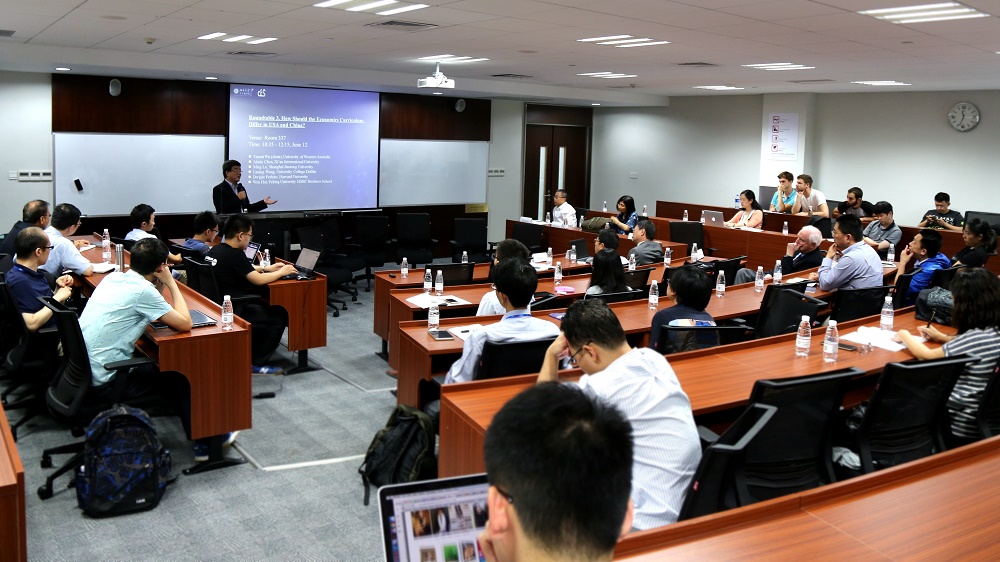
PHBS Dean Hai Wen gives remarks on the difference between Chinese and American economics education
After academic dialogues and discussions, participants are provided a chance to visit Huawei, the leading technology company in China. Based in Shenzhen, China’s most innovative and entrepreneurial city, Huawei has become one of the world’s most important players in the communications industry, but it is also the only Fortune 500 company that has not yet been listed. So, its management models and business patterns have long been a puzzle for the outside world. The company visit offered scholars the opportunity to conduct field studies and gain a better understanding about Haiwei.
An international academic organization founded by Chinese overseas scholars, CES holds conferences in North America and China each year. As the host of this year’s annual conference, PHBS has long committed to academic research concerning frontiers of economics, finance and management. Its faculty members have published papers in key international journals like
American Economic Review,
Journal of Econometrics,
Journal of Monetary Economics and
Strategic Management Journal. With the dedication to facilitate the integration of economic theories and practices, PHBS held the first PKU-NUS international conference on quantitative finance and economics at the beginning of May this spring and has successfully held a series of “PHBS Finance Frontier lectures,” creating a platform for faculty, students and practitioners to exchange both academic findings and practical experience. The 2016 CES conference also served as a good opportunity for international and domestic scholars as well as experts and practitioners to come together to share their views on the major problems and challenges facing China’s and the world’s economy.
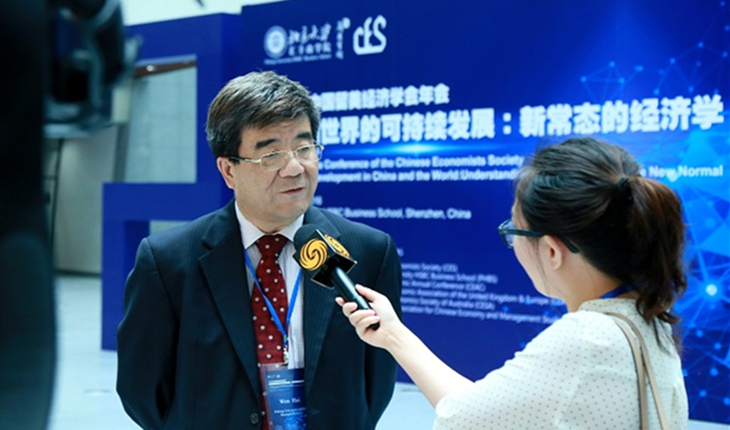
PHBS Dean Hai Wen accepts the interview from Phoenix TV
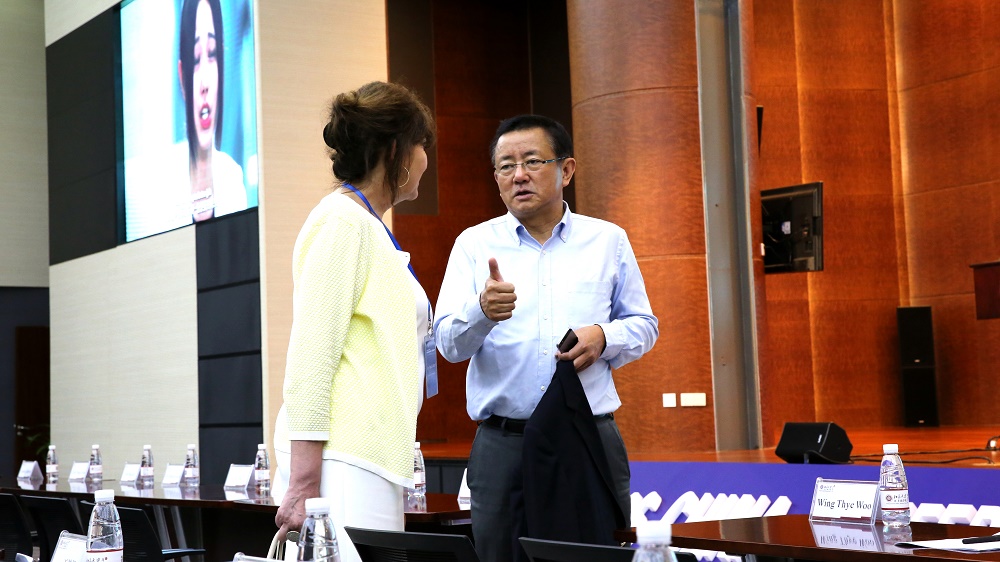
PHBS Professor Fang Gang talks with the participant
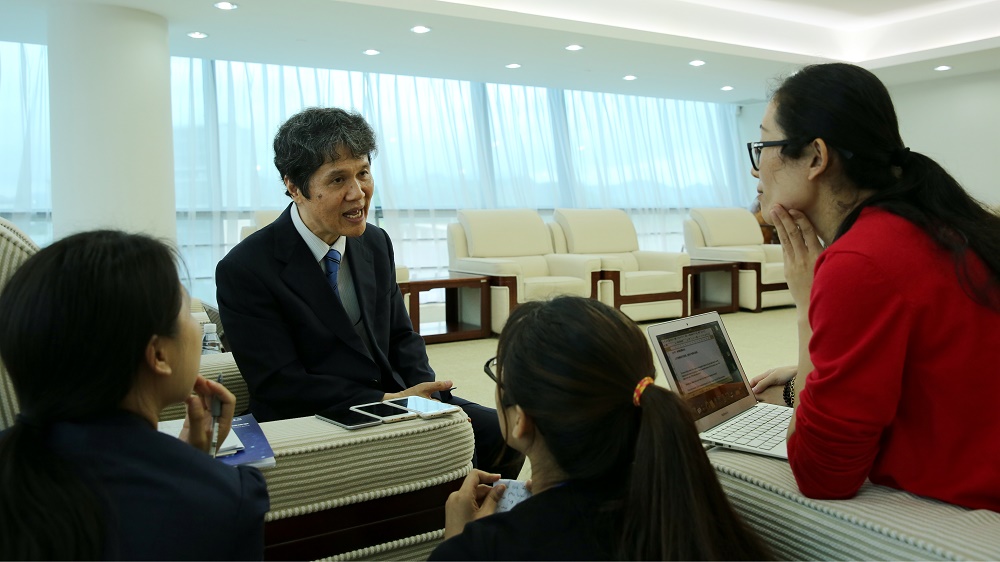
Kiyohiko Nishimura, professor University of Tokyo and National Graduate Research Institute of Policy Studies, accepts a joint interview
By Annie Jin
Edited by Priscilla Young

















